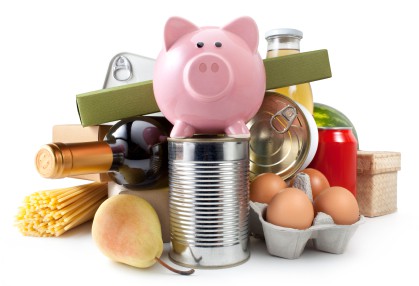Smart Grocery Savings: A Parent’s Guide to Budget Shopping
Hey there, savvy shopping parents! If you’ve ever found yourself stunned at the grocery checkout, wondering where your paycheck just went, you’re in the right place. Groceries are a major expense for most families, but with a sprinkle of planning and a dash of creativity, you can feast like kings on a pauper’s budget! Let’s dive into some cost-cutting culinary secrets that’ll keep both your wallet and your pantry happily full.
1. Plan, Plan, Plan!
Before you think about hitting the stores, take some time to plan your meals for the week. This simple step is the cornerstone of saving money on groceries. With a menu in hand, you’ll buy only what you need, reducing waste and impulsive purchases. Plus, it’s a great opportunity to get the kids involved! Let them pick a meal they’d like, which also helps ensure they’ll eat what you buy.
2. Embrace the List
A shopping list isn’t just a suggestion; it’s your grocery store game plan. Stick to your list like it’s the treasure map to your family’s financial freedom. Wandering aisles without one is like entering a maze of spending traps. Be disciplined, and resist the sirens of sales on items you don’t really need.
3. Don’t Shop Hungry
It might seem obvious, but we’ve all broken this golden rule at least once—and regretted it. Eat a meal or have a healthy snack before you venture out. Shopping on a full stomach helps you resist the temptation of those tasty-looking treats that can balloon your bill.
4. Clip and Click for Savings
Coupons: they’re not just for your grandma anymore! Digital couponing has made saving money on groceries easier than ever. Before you shop, check store apps and websites for digital coupons you can load directly onto your loyalty card. If paper coupons are more your style, a weekly glance at the Sunday newspaper can snip some serious dollars off your receipt.
5. Warehouse Clubs and Bulk Buys: Yay or Nay?
Warehouse clubs can be a haven for deals, but only if you shop smart. Buying in bulk is wonderful for non-perishable staples or items you go through quickly. However, steer clear from bulk fresh produce or dairy unless you’re certain you can use it before it spoils. The key to these clubs? Knowing your prices. Sometimes the deals are unbeatable; other times, you can find better bargains at your local grocery store.
6. Get Seasonal with Your Produce
Those strawberries may look delicious in December, but they’re often a lot pricier out of season. Opt for fruits and vegetables that are in season; they’re not only cheaper, but they taste better too. Plus, it’s a great way to vary your diet and encourage your family to try new things!
Stay tuned, as we’ll be slicing and dicing even more money-saving tips in our upcoming sections, including tips on why you should go generic, become besties with your freezer, grow your green thumb, leverage loyalty programs, and explore local markets.
Now that you’re equipped with these grocery saving strategies, you’re ready to conquer the checkout and keep your budget in check. Remember, smart grocery shopping isn’t about compromising; it’s about making informed choices to maximize the value of every dollar. Happy savings, and happy eating!

7. Go for Generic
Brand loyalty can cost you quite a few extra dimes at the checkout. Many generic or store brand products are just as good in quality as their name-brand counterparts, but they can come at a fraction of the price. Try swapping out some of your regular brands for generic ones, and your budget will thank you. Make it a fun taste test adventure with the kids to see if they can spot the difference!
8. Freeze and Save
Your freezer is like a magical time capsule for food. Use it wisely! Cook in bulk and freeze portions for later, or freeze excess ingredients before they spoil. This includes bread, meats, and even some dairy products like cheese or butter. And, don’t forget about those freezer meals that can save the day when time is short and the family is hungry.
9. Grow Your Own
Here’s an idea that’s both fun for the family and kind to your purse—start a small vegetable garden. Whether it’s a couple of tomato plants or a full-blown vegetable patch, getting your hands dirty can lead to savings at the store. Plus, there’s nothing quite like the taste of home-grown produce. It’s a wonderful way to teach kids about where their food comes from, all while shaving money off your grocery budget.
10. Loyalty Programs and Cash-Back Apps
Take advantage of loyalty programs offered by grocery stores you frequent. Sometimes they offer member-only discounts or accumulate points you can redeem for discounts on future purchases. On top of that, there are cash-back apps available that give you rebates simply for purchasing specific items. This can be a sweet way to get some money back on your grocery outings.
11. Explore Local Farmers’ Markets
Last but not least, your local farmers’ market can be a treasure trove of deals, especially towards the end of the day when vendors are looking to sell off remaining stock. You’ll get fresh, local produce often at better prices than the supermarket—and you’re supporting your local community, too. It can turn into a lovely family outing and a learning experience for children about local food and community.
Armed with these savvy strategies, you, dear parents, are all set to make your next grocery shop a wallet-friendly experience. These tips aren’t just about saving money; they’re about making smarter choices that benefit your family’s health and happiness as well. With a little effort and a lot of smart shopping, you can slash your grocery bills and still enjoy delicious, nutritious meals together as a family. Now let’s go save some green!
See more great Things to Do with Kids in New Zealand here. For more information see here
Disclaimer
The articles available via our website provide general information only and we strongly urge readers to exercise caution and conduct their own thorough research and fact-checking. The information presented should not be taken as absolute truth, and, to the maximum extent permitted by law, we will not be held liable for any inaccuracies or errors in the content. It is essential for individuals to independently verify and validate the information before making any decisions or taking any actions based on the articles.




